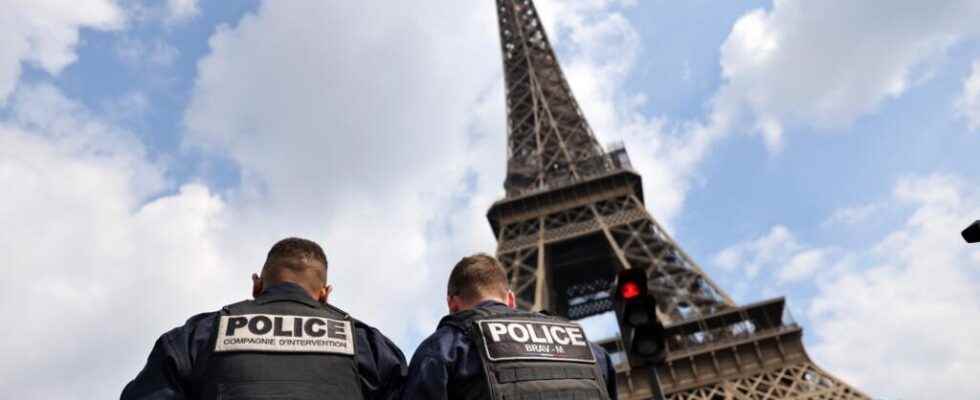Safety and mobility during the Paris 2024 Olympic Games are currently at the center of discussions between the actors responsible for organizing the event.
In the middle of winter, some have cold sweats at the mention of the Paris 2024 Summer Games. 18 months from the opening ceremony, crucial questions still arise in terms of organization.
If the Minister of the Interior Gérald Darmanin warned his troops by indicating that no one would be on vacation in June, July and August, we will have to find tricks to recruit security guards in the private sector.
The 30,000 police and gendarmes who will be mobilized every day on average, including 35,000 for the opening ceremony alone with the banks of the Seine, will not be enough. Twenty-five thousand additional agents will have to be recruited. Problem: the sector is already in tension and there are more offers than candidates. With the Covid-19 crisis, many have changed jobs. Faced with the risk of getting stuck in the water in the recruitment process, the profession has recently seen its salaries increased and new negotiations are underway. The sector is faced with another major difficulty: the profession has only 15% of female staff. We will have to recruit a number of them for the pat-downs of women during screenings.
The thorny question of transport
With regard to transport, the president of the Ile-de-France region Valérie Pécresse (LR) asks that the gauge of the opening ceremony of the Paris Olympics be “ less than 500,000 » instead of the 600,000 currently linked to transport safety. A position given during a mobility committee which brought together all the transport players of the Olympics when the question of transport becomes crucial for the Olympics in 18 months, and that a standoff opposes it to the State on the subject .
Valérie Pécresse points to a transport capacity “ insufficient ” with a “ risk of crowd movement “. The opening ceremony, which should welcome 600,000 people, is the subject of “ difficult discussions ” in particular between the State, the town hall of Paris, the police headquarters and the organizers. On the possibility of transport all night during the Olympic Games, Valérie Pécresse takes up the alerts of infrastructure managers on ” the operational impossibility of such a choice “, because he ” would remove any ability to perform a number of routine operations and maintenance “.
Alongside the provision of public transport for spectators, buses will be used to transport the approximately 200,000 accredited persons (athletes, teams, media, etc.). THE “ responses to the invitation to tender for the transport of accredited members are being examined and the signing of contracts will take place before mid-April “, she clarified. A first call for tenders had been unsuccessful.
A debated transport budget
In a letter addressed to the Minister of Transport Clément Beaune, Valérie Pécresse also alerted to the lack of financial resources to guarantee the proper functioning of transport during the Olympic Games, and demanded commitments from the State. Ile-de-France Mobilités (IDFM) plans to transport 7 million passengers during the two weeks of the Olympic Games – from July 26 to August 11, 2024 – and 3 million during the Paralympics – August 28 to September 8, 2024.
According to IDFM, which organized fundraising meetings on January 23, it would miss 800 million euros to complete its budget in 2024. The authority is therefore asking the State for resources of up to 600 million euros: 200 million for the additional transport offer linked to the Olympic Games and 400 million for the operation of new lines – extension of the RER E, line 14 and pre-operation of the Grand Paris Express lines.
Valérie Pécresse threatened not to support TDM (transportation demand management), which aims to control travel demand by reducing or distributing flows, “ until a commitment, even oral, has been made by the government on the essential question of human and financial resources “.
The rapporteurs of a parliamentary fact-finding mission on the Paris 2024 Olympic Games judged « worrying » the transport situation in Île-de-France a year and a half before international competition. “There is a multiplicity of uncoordinated actors on the subject: the RATP, IDFM, the Grand Paris company, the Cojop… Everyone was in their corner, in their corridor, and did not speak to each other. And when they spoke, it was to say that what was wrong was the fault of the other “, summarized the deputy Stéphane Peu (GDR, Nupes).
